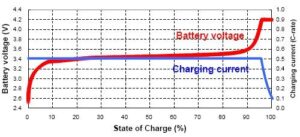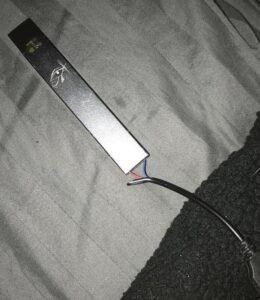Has your car been making an adrenaline-pumping, race car-like sound lately? Wondering why does my car sound like a race car? Well, fear not! I’m here to shed some light on this revved-up mystery and guide you towards a solution. It’s no secret that we all love the exhilarating roar of a race car engine, but when that sound starts emanating from your own vehicle, it may be cause for concern. Let’s dive into the engine’s symphony and unravel the reasons behind your car’s sudden transformation into a speed demon. Buckle up! We’re about to explore the world of engine sounds and find out what’s causing your car to mimic a race car.
Why Does My Car Sound Like a Race Car?
Do you ever find yourself wondering why your car sounds like a race car? Maybe you’ve noticed a high-pitched whine, a deep growl, or an overall aggressive tone coming from your vehicle. There are several reasons why your car may sound like a race car, and in this article, we’ll explore those reasons in detail. From engine modifications to exhaust systems, we’ll uncover the various factors that can contribute to this exciting auditory experience.
1. Engine Modifications
One of the primary reasons why your car may sound like a race car is due to engine modifications. Car enthusiasts often modify their engines to enhance performance, and these modifications can significantly impact the sound produced by the engine. Here are some common engine modifications that can contribute to a race car-like sound:
- Performance Exhaust Systems: Upgrading to a performance exhaust system can result in a deeper and more aggressive sound. These systems typically have larger pipes, less restrictive mufflers, and are designed to optimize airflow. The increased airflow leads to a deeper exhaust note, reminiscent of a race car.
- Cold Air Intake: Installing a cold air intake system can also affect the sound of your car. Cold air intakes draw cooler air into the engine, which can increase combustion efficiency. This, in turn, can lead to a more pronounced engine sound.
- Aftermarket Headers: Replacing the stock headers with aftermarket ones can further enhance the sound of your car. Headers are responsible for collecting exhaust gases from the engine cylinders and channeling them into the exhaust system. Aftermarket headers are often designed to improve exhaust flow and can contribute to a more aggressive engine sound.
- Camshaft Upgrades: Changing the camshaft can have a significant impact on both the performance and sound of your car. Performance camshafts are designed to open the engine valves for longer periods, allowing more air and fuel into the combustion chamber. This results in a more aggressive exhaust note and increased power.
2. Exhaust Systems
The exhaust system plays a crucial role in how your car sounds. The stock exhaust system is designed to minimize noise and meet noise regulations, but an aftermarket exhaust system can give your car that race car-like sound you desire. Here are some factors to consider regarding exhaust systems:
- Cat-back Exhaust Systems: A cat-back exhaust system replaces the stock exhaust system from the catalytic converter onwards. These systems often feature larger-diameter pipes and less restrictive mufflers, resulting in a more aggressive sound.
- Axle-back Exhaust Systems: An axle-back exhaust system replaces the mufflers and exhaust tips, leaving the rest of the exhaust system intact. While not as extensive as a cat-back system, it can still provide a noticeable improvement in sound.
- Straight-pipe Exhaust Systems: Straight-pipe exhaust systems eliminate the mufflers entirely, resulting in an extremely loud and aggressive exhaust note. However, it’s important to note that straight-pipe setups may not be street-legal in all areas due to noise regulations.
- Resonator Deletes: Resonators are components in the exhaust system designed to reduce certain frequencies of sound. By removing resonators or replacing them with high-flow alternatives, you can further enhance the sound of your car.
3. Engine Type and Performance
The type of engine in your car and its performance characteristics can also contribute to a race car-like sound. Here are a few factors to consider:
- Performance Engines: Performance-oriented engines, such as those found in sports cars or high-performance vehicles, are often designed to produce a more aggressive and exhilarating sound. These engines may have different camshaft profiles, intake designs, or exhaust systems that result in a race car-like sound.
- Turbocharged Engines: Turbocharged engines can produce unique sounds due to the turbocharger itself. The sound of the turbo spooling up and the release of pressurized air can give your car an exciting and race-inspired auditory experience.
- High-displacement Engines: Engines with larger displacements tend to have a deeper and more powerful sound. The size and configuration of the cylinders can significantly impact the overall engine note.
- Performance Tuning: Performance tuning, whether through software modifications or hardware upgrades, can alter the engine’s behavior and sound. By optimizing fuel and air delivery, adjusting ignition timing, or increasing boost pressure in turbocharged engines, you can achieve a more race car-like sound.
4. Intentional Sound Enhancement
In recent years, car manufacturers have started incorporating sound enhancement technologies to enhance the auditory experience of their vehicles. These technologies use speakers, amplifiers, and synthetic sound generation to produce an artificial but thrilling engine sound. The sound is typically amplified through the car’s audio system or exhaust system, giving your car a race car-like sound without actually modifying the engine or exhaust. While some purists may frown upon these artificial enhancements, they have become increasingly common in the automotive industry.
5. Worn or Faulty Components
Sometimes, a race car-like sound can be an indication of worn or faulty components in your vehicle. While not as exciting as the previous factors mentioned, it’s important to address any potential issues to ensure the proper function of your car. Here are a few components that, when worn or faulty, can affect the sound:
- Exhaust Leaks: Leaks in the exhaust system, such as cracked pipes or failing gaskets, can result in unusual sounds. These leaks can cause a hissing or high-pitched whine that may resemble a race car but should be addressed promptly to prevent further damage.
- Worn-out Mufflers or Catalytic Converters: As mufflers and catalytic converters age, they can deteriorate and produce abnormal sounds. A muffler that has lost its sound-dampening properties or a failing catalytic converter may result in a louder and more aggressive exhaust note.
- Engine Misfires: If your engine is misfiring, it may produce a rough and uneven sound. Misfires can be caused by various factors, including faulty spark plugs, ignition coils, or a malfunctioning fuel delivery system. Addressing these issues will not only improve the sound but also ensure the proper functioning of your engine.
In conclusion, there are several reasons why your car may sound like a race car. From engine modifications to exhaust systems, each component and modification can contribute to the overall sound. Whether you’ve intentionally modified your car for performance or simply love the exciting sound of a race car, understanding the factors behind this auditory experience can help you appreciate and maintain your vehicle’s unique sound. Remember, always ensure that any modifications comply with local laws and regulations to avoid penalties or unnecessary noise pollution.
WHY CAR MAKES HUMMING NOISE WHEN ACCELERATING or Driving
Frequently Asked Questions
Why does my car sound like a race car?
There could be several reasons why your car sounds like a race car:
Why is my exhaust making a loud noise like a race car?
A loud exhaust noise similar to a race car could indicate a problem with your muffler or exhaust system. It could be due to a leak, a damaged muffler, or a faulty exhaust manifold.
Why does my engine sound so loud and powerful like a race car?
If your engine sounds louder and more powerful than usual, it might be a sign of an issue with the engine’s performance. It could be a problem with the exhaust system, such as a faulty catalytic converter or a worn-out muffler.
Why does my car produce a high-pitched whining noise resembling a race car?
A high-pitched whining noise could be caused by a failing serpentine belt or a loose belt tensioner. It is essential to address this issue promptly to avoid any further damage to your vehicle.
Why does my car’s engine rev up excessively, resembling a race car?
If your engine constantly revs up excessively, it could indicate an issue with the throttle body or the idle control system. It is recommended to have a professional inspect and diagnose the problem to ensure proper functioning of your vehicle.
Why does my car make a roaring noise like a race car when accelerating?
A roaring noise during acceleration might suggest a problem with the exhaust system or the air intake system. It could be a result of a damaged muffler, a faulty catalytic converter, or an issue with the air filter. A thorough inspection is necessary to identify and resolve the underlying cause.
Final Thoughts
If your car sounds like a race car, there could be a few reasons behind it. One possible explanation is a modified exhaust system that enhances the engine sound. Another reason could be a problem with the exhaust system itself, such as a leak or a damaged muffler. Additionally, a high-performance engine or a sporty car design can contribute to the race car-like sound. In some cases, an issue with the engine or its components might be causing the unusual noise. To get a proper diagnosis and address any potential problems, it is recommended to consult with a qualified mechanic. So, why does your car sound like a race car? Explore these possible reasons and seek professional assistance for a resolution.



